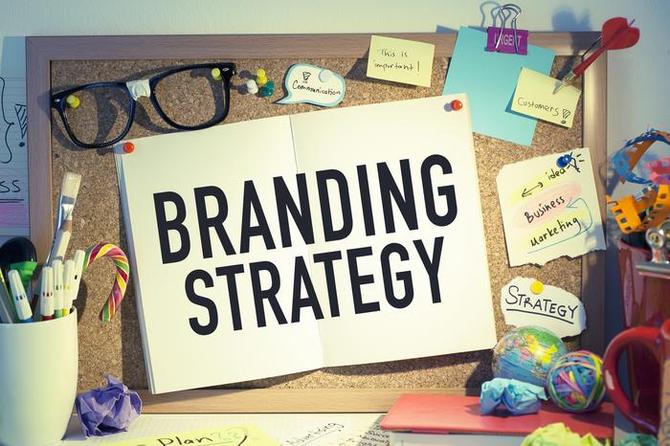Brands not only need to be purpose led, they must bring soul into their storytelling if they want to build cultural cut through with modern consumers, Universal Music Group’s chief of possibilities says.
Speaking at today’s AANA Reset event in Sydney, Olivier Robert-Murphy opened the event with a talk around purpose, love and artistic cut-through under what he dubbed the ‘star’ power of modern marketing.
With change the dominant factor in every business today, Robert-Murphy argued the fundamentals of marketing remain the same. What has been shaken-up is the velocity of media introduction, the pace of business change and product innovation, and the wide array of consumer choice available.
In this face of this, many companies have focused on the left brain, or our operational brain. Yet brands must equally focus on the right brain, or our emotional selves, in order to achieve optimal advertising performance.
Key is being a purpose-led brand, but also knowing how to put soul into telling your story. Robert-Murphy described this approach through the acronym “STAR marketing” – or ‘storyfeeling’, truth, aspirational, relevance.
Storyfeeling, for example, is about ensuring consumers connect with the story you’re telling. “Many talk about storytelling – it’s most common word used in marketing along with engagement, reach and branded content. Yes, we need to tell stories and touch people,” Robert-Murphy told attendees.
“But you need to really connect and that’s why storyfeeling is so important.”
Key human attributes coming into this mix are honesty, being clear on your values, and transparency. To highlight the point, Robert-Murphy noted research showing 69 per cent of generation Z value sincerity, and two-thirds agree being true to your values makes a person and brand cool. In addition, 89 per cent of Gen Z would rather buy from a company supporting social and environmental issues over one that does not.
As an example of such connection, Robert-Murphy pointed to Volvo’s EVA initiative, which took its cues from the realisation that 71 per cent of women are more likely to be injured in car crash, and 17 per cent more likely to die. This is because crash test dummies are overwhelmingly designed on the male physique.
Not only did Volvo highlight the rational facts, it has worked to re-address the crash test dummy problem, and opened up all findings to all parties, including the automotive competition.
Aspiration, meanwhile, is broader than purpose, Robert-Murphy said. “We aspire to be good people, to succeed, to fulfil a bigger purpose for aspiration of the world,” he continued. “Companies that have purpose perform better.”
Relevance is then about nurturing cultural capital. “People are pulled towards what speaks to them on a personal level. You do this by creating an emotional connection through relevance,” Robert-Murphy said.
“If you do that, you build cultural capital, and if you keep doing it, you put more and more in the bag and earn more and more relevance.”
To illustrate the point, Robert-Murphy noted Universal’s research into eight of the fastest-growing artists in the world today, including Cardi B and Billie Eilish, to find out why they’re so successful right now. The research across fans and consumers covered what cultural needs these artists are fulfilling, and why consumers are listening to them.
Key findings included an artist’s ability to command social attention, meaning and value, unite and foster togetherness, showcase freedom of choice, social purpose, self-expression, truth and honesty and self-worth. These are all vital pieces in overcoming traditional marketing challenges such as connection, customer loyalty and building awareness and reach, Robert-Murphy said.
A brand doing this well is Nike, he said, often by using rejection as a fuel for personal accomplishment. “You don’t have to explain or justify yourself, you ‘just do it’,” Robert-Murphy said.
Burger King has also upped its cultural capital by being expressive, open and making what’s private, public. Robert-Murphy pointed to the brand’s advertising, which has included everything from showing restaurants on fire, to the ‘Whopper Detour’ campaign encouraging people to sign-up to its mobile app and get a cheap burger while in the vicinity of a rival McDonalds site.
“We’ve seen artists respond to the world around them by building cultural capital, which drives relevance. This is what ‘STAR’ quality is about – it’s what artists do every day and that’s why fans love them,” Robert-Murphy said. “If you ask any Katy Perry fan who she is, she’s their friend.
“STAR marketing generates love and make brands a consumer’s friend.”
But is such soul built into a brand first, or does soul come through the creative idea? Robert-Murphy said Universal used to spend 68 per cent of its marketing spend on TV, now it’s 8 per cent. Yet the emphasis on reputation and consistency remains the same.
“You need to keep your message constant, and repeat it, and the soul will be there,” he said.
Robert-Murphy admitted getting buy-in from an organisation for this kind of big brand building continues to challenge marketers.
“You need brands to behave as human beings and sometimes that’s difficult. Be brave, take a risk and lose your job if you have to lose it,” he added.
Follow CMO on Twitter: @CMOAustralia, take part in the CMO conversation on LinkedIn: CMO ANZ, follow our regular updates via CMO Australia's Linkedin company page, or join us on Facebook: https://www.facebook.com/CMOAustralia.












